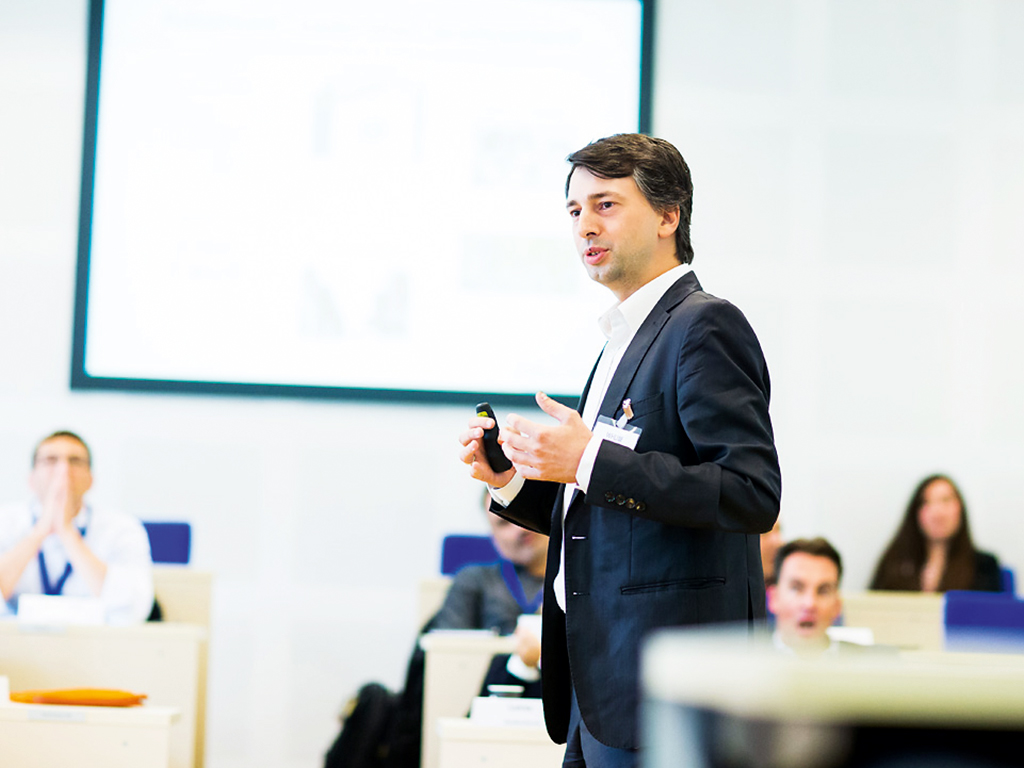
Leadership and personal development are important components of a successful executive MBA programme. The Kellogg-WHU EMBA programme based in Germany has always been aware of this. That is why the programme regularly updates its leadership and personal development activities to reflect new trends in executive coaching.
Managers today are expected to make collaborative decisions and provide inspiration to their teams. To this end, the programme, whose main mission is to develop managers into multi-functional cross-border leaders, fully integrates leadership activities into its curriculum. “Before I joined the programme, I wanted to learn how to become a better leader. I wanted to know how others perceived me, how to keep people motivated and make them perform at their best. After taking advantage of all the great tools on offer, such as personality profiling and business coaching sessions, I really got to know about myself and my managerial style”, says Kellogg-WHU EMBA alumnus Sharam Sadeghi.
You need to first understand yourself as a person in order to develop further. This is… why we have a strong focus on shaping students’ self-awareness
With its latest cohort, the Kellogg-WHU EMBA programme introduced its newly redesigned Advanced Leadership Development course, led by Daniel Weninger, Head of Learning & Development at the Center for Responsible Leadership at WHU Otto Beisheim School of Management in Germany. “Let’s be clear, there is no leadership development without personal development”, says Daniel. “You need to first understand yourself as a person in order to develop further. This is the reason why we have a strong focus on shaping students’ self-awareness during their studies.”
A modern programme
The Advanced Leadership Development course aims to transform EMBA students into leaders of influence. It looks at various leadership and personal development topics from three different angles: leading others, being led, and leading oneself. This includes personality assessments, which are based on the so-called ‘big five’ personality traits considered the most valid and reliable in psychology. It also includes 360° feedback sessions, in which EMBA students receive open feedback from their peers and evaluate the effectiveness of the methods suggested during personality assessments and other sessions.
Other big components of the programme include business coaching sessions and group supervision. The Kellogg-WHU EMBA programme recognises the importance of having a business coach provide constant support throughout the entire EMBA journey. Therefore, each EMBA student is assigned a business coach whose main purpose will be to assist them with things such as personal goals, work-life balance, professional development and team issues. In addition, business coaches will observe teams and assess group dynamics, individual roles and team performance, and then provide feedback to the whole team.
As part of their curriculum, EMBA students are also required to attend workshops focusing on the learning journey, intercultural interaction, business communication, career design and post-EMBA transition. Finally, EMBA students have the opportunity to experience a different kind of leadership and personal development through an outdoor leadership training activity, providing a more hands-on experience in a unique and equally challenging environment. Adapted to the physical fitness level of each participant, this training tests team-building and leadership abilities under all circumstances.
“It’s about self-awareness and constant reflection; it’s about openness to external feedback and the willingness to improve constantly. In a dynamic economic environment, where companies face fierce competition, change is the main constant in daily business. Thus, navigating your team successfully within that change process and maintaining/improving organisational performance are becoming key success factors for a leader”, concludes Sharam.

